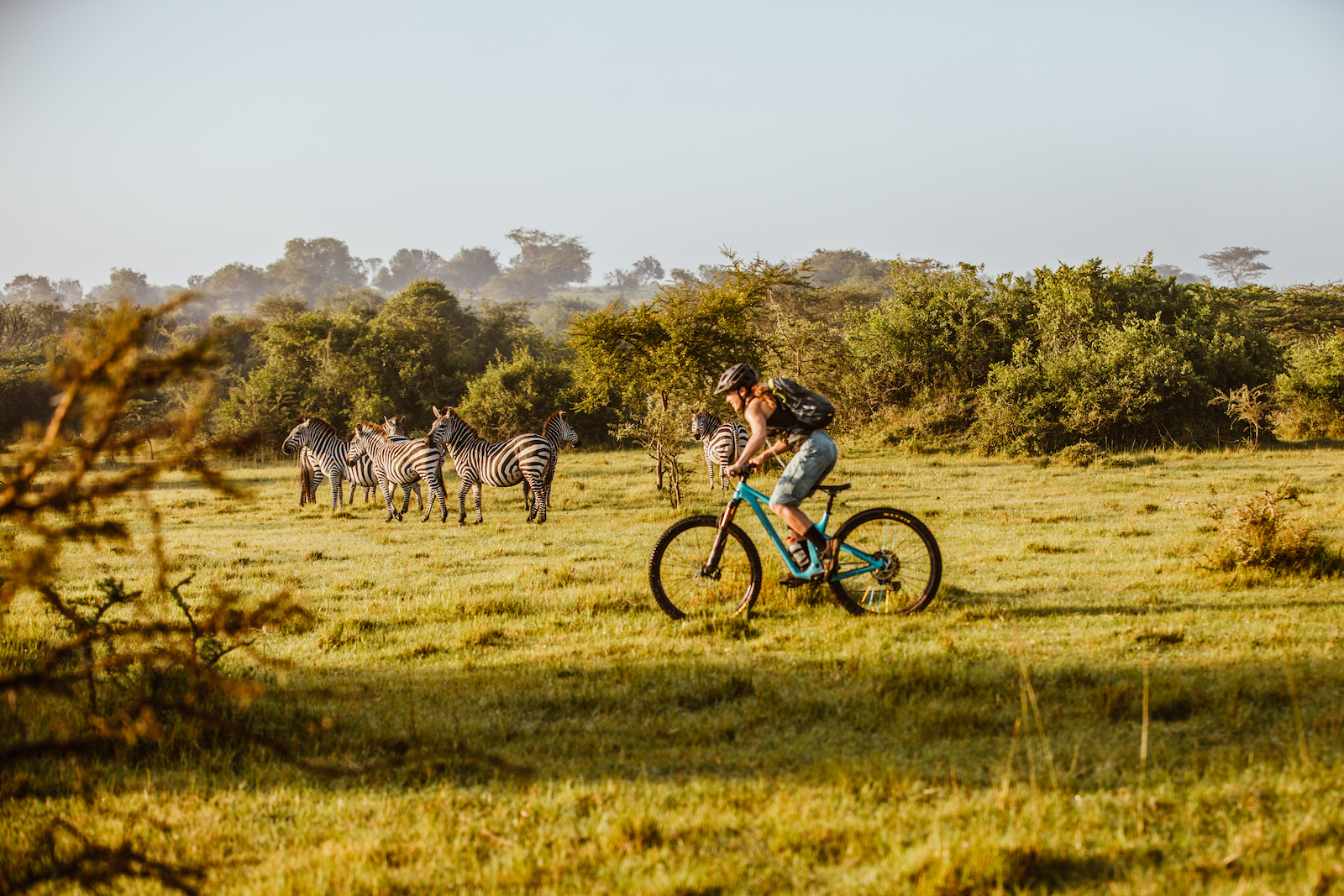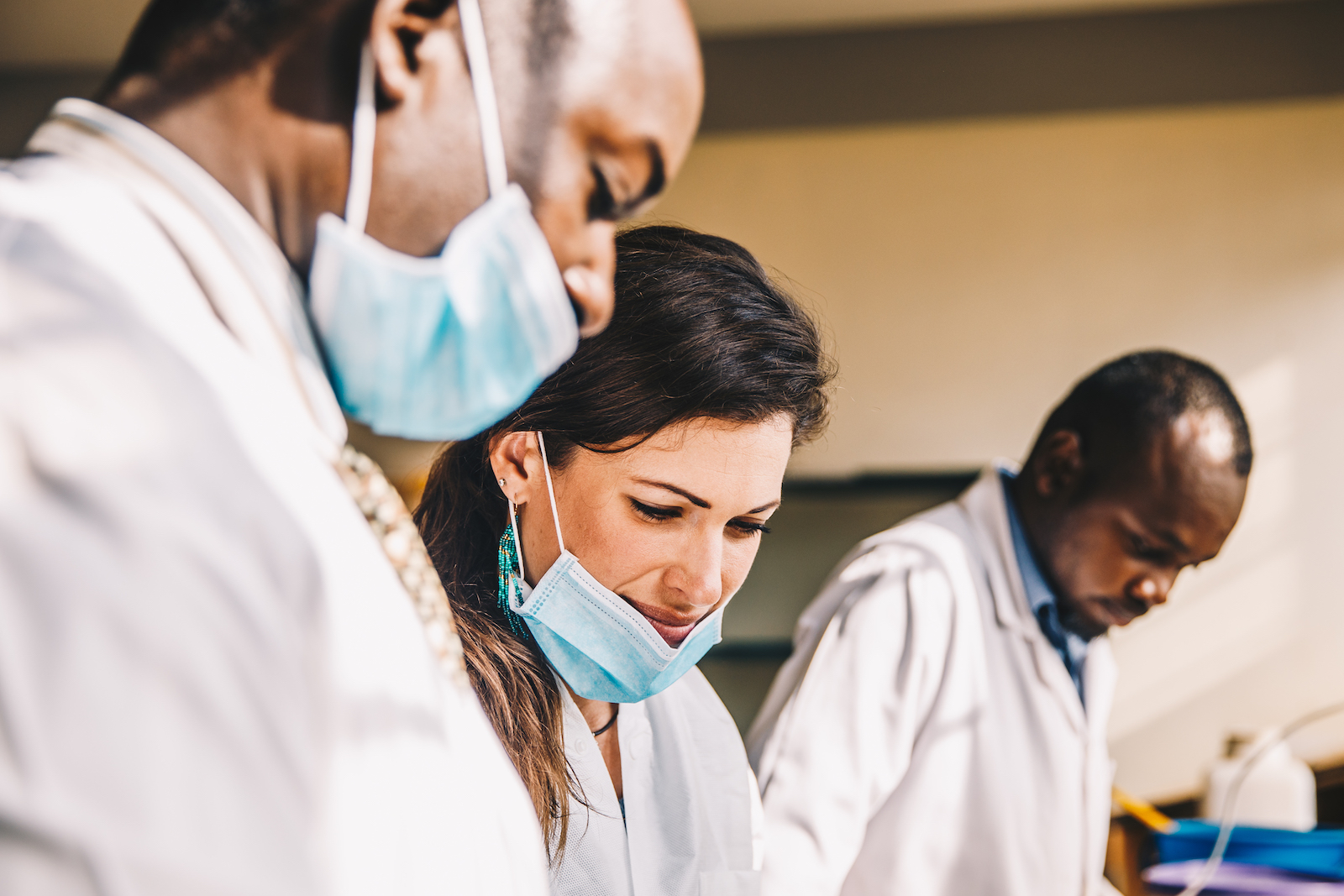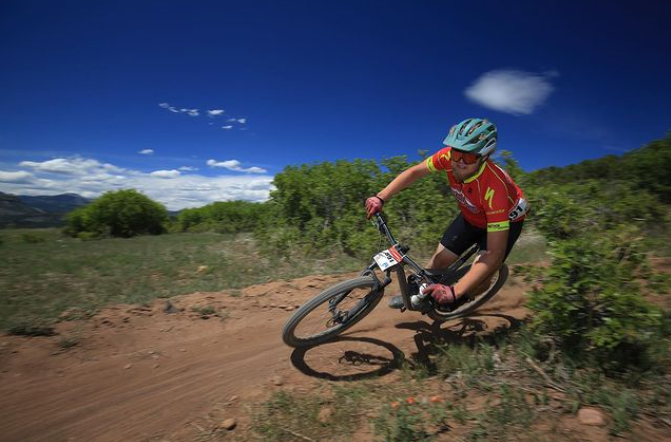Riding in Uganda: How bikes are central to Nichole Baker's pathology work
Path of Logic provides solar lights to rural villages in Uganda, and much more

Nichole Baker’s first bike trip in Uganda followed rough dirt roads through the southwest part of the country for about 250 miles. Over the course of a few days, she rode from the city of Mbarara heading west toward the border with the Democratic Republic of the Congo. The route then veered south, crossing the Bwindi Impenetrable Forest and reaching a high point of about 8,000 feet, before ending at Lake Bunyonyi.
Baker is used to challenging rides—she’s an ambassador for Yeti Cycles and regularly tackles big rides in Colorado’s high country—but that 2018 ride in Uganda presented a unique insight into the power of traveling by bike.
When she entered villages along the route, children would approach her out of curiosity about what a foreign person was doing there. The following year, however, Baker traveled via car for a portion of her planned route as a safety precaution. But this time, local people were intimidated.
The vulnerability of being on a bike led to an authentic connection and the ability to distribute solar-powered lights to the children of the villages, an initiative that Baker runs through her non-profit organization, Path of Logic.
Pathology work
Baker’s work in Uganda consists of multiple components. She teaches pathology students, helps improve laboratory processes, and Path of Logic provides funding for the Mbarara University of Science and Technology.
Baker first traveled to Uganda in 2017 after applying for a teaching position that was posted by a Harvard professor who had ten years of experience working with a lab in Uganda. The previous year, Baker had volunteered with an organization that was looking to set up a pathology lab in Haiti. The Haiti trip lacked meaningful organization, but Baker’s experience in Uganda was the opposite. A key takeaway was that for this type of work to work out, input and coordination with locals was essential.
“I fell in love with Uganda after that first trip, and decided to start dedicating my time to doing process improvements,” Baker said. “And that was all directed by the staff that I was working with in Uganda.”

In 2019, Path of Logic introduced a formalin recycler to the lab, which is an example of the process improvements that Baker has worked on. Formalin is a chemical that’s used when examining tissues under a microscope and is also a human carcinogen. Previously, the medical school in Uganda was disposing of the formalin down the sink. With a recycler, the formalin can last longer and reduce contamination from improper disposal.
The teaching component of the trips is invaluable since the medical student’s books are outdated. Baker teaches anatomic dissection and evaluation of tissue samples. This is how pathologists can determine if a patient’s cells are cancerous, for example.
In recent years, Baker has turned her attention toward another area of the Ugandan healthcare infrastructure. In 2019, Baker worked with software engineers to build a program that can generate pathology reports and electronically keep track of patient’s cases and medical data. Using this, cancer cases can be better tracked, which in turn could lead to more funding for pathology services, which is currently underfunded due to lack of data.
The program will soon be used by all government hospitals in Uganda, and part of Baker’s most recent trip last month was to help with the implementation. In addition, the trip consisted of teaching, supplying antibodies that are used to identify specific cancers, and the riding component to deliver the lights.
Solar Lights
The solar lights are provided by a company called Mpowerd. Baker had actually used one of the lights on the Haiti trip and found it useful. She connected with the company, which was interested in working with her as an ambassador and providing lights for use in Uganda.
Every year, Baker auctions off items from her bike industry sponsors to raise funds for Path of Logic. This year, the auction will include a Yeti SB115 and SB130. Seeking items for the auction is how Baker got in contact with Mpowerd, which led to her bringing the lights to Uganda.
In Uganda, power outages are common and, in rural areas, there can be no electricity at all. Through her colleagues in Uganda, Baker learned that this lack of electricity particularly impacts young students. Primary schooling is provided to all children in Uganda, but students must pass a test to get into secondary school. The lack of electricity puts students in those areas without electricity at a disadvantage, since they can’t study for the test in the dark.
Baker was already planning on bringing her bike to Uganda and then realized after her experiences distributing the lights how extraordinary of an asset the bike can be.
“I didn't quite know how that was going to go,” she said. “I just kind of went for it, but I very quickly started to understand that without the bike, I wouldn't have been able to do what I was doing with the lights.”

Riding in Uganda
Baker says the riding in Uganda is hilly, rough and hot. Terrain ranges from more baron and open savanna to the mountainous rainforests. In the more mountainous areas, a ride can easily net 10,000 feet of climbing in less than 100 miles.
This time around, she rode from Entebbe to Mbarara over two days covering about 120 miles. Baker carries some lights with her, while a follow car carries more supplies as well as a translator. On previous trips, Baker rode mountain bikes, but this year she brought a gravel bike.
“I think the gravel bike was fine for this year,” Baker said. “I didn't suffer too much but next year I'll be back to the southwest exploring and I think that that terrain is just better suited with a little bit of suspension.”
This year, Baker’s boyfriend, Payson McElveen, came along for the ride too. Not only did he help with light distribution, but he also rode the first route that Baker took in Uganda. The red dirt roads were so bumpy that the bar tape on his gravel bike started to come unraveled.
Another aspect of the trip that McElveen assisted with was filming content for a documentary. Part of that was conducting interviews with Baker’s colleagues that she has been working with over the past five years of traveling and working in Uganda.
Currently, Baker is working on a pilot study that would set up biopsy centers in Uganda and educate people about cancer and where to go to get it treated. In recent decades, lifespan in Uganda has increased due to improved identification and treatment of HIV and other infectious diseases. Since people are living longer, cancer is becoming more and more of an issue in the country.
“It'll be a very large epidemiologic study but trying to create a shift where people start recognizing it before it's too late,” Baker said.
Bikes are a method of transport and recreation for many. Baker’s experience with bikes in Uganda unveils a universal truth about the machines. Bikes can connect people. Riding a bike allows Baker to better connect with the people in Uganda and also allows her to better assist them with both the light distribution and pathology work.
It's a beautiful country, and I’ve had a really unique way to see it and experience it and I hope that I can just make a positive impact out there.”
Learn more about Path of Logic on their website, and follow Baker on social media to find out when the next fundraising auction is.
Ryan Simonovich has been riding and racing for nearly a decade. He got his start as a cross-country mountain bike racer in California, where he cultivated his love for riding all types of bikes. Ryan eventually gravitated toward enduro and downhill racing but has also been found in the occasional road and cyclo-cross events. Today, he regularly rides the trails of Durango, Colorado, and is aiming to make a career out of chronicling the sport of cycling.
Rides: Santa Cruz Hightower, Specialized Tarmac SL4

